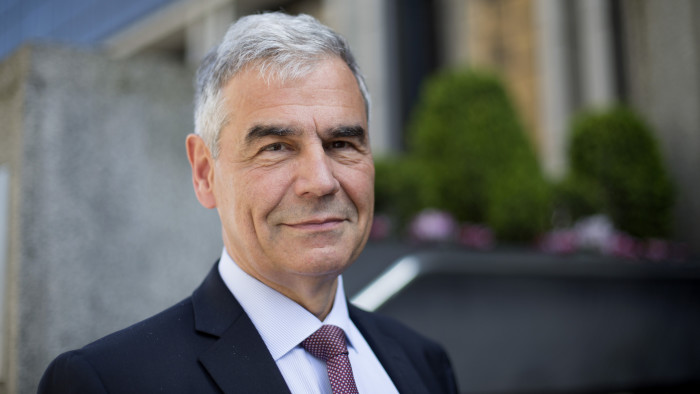Meet the dean: Jean-Philippe Ammeux, Iéseg

Simply sign up to the Business education myFT Digest -- delivered directly to your inbox.
Jean-Philippe Ammeux is an Iéseg man through and through. Almost most of his adult life has been spent at the Lille-based business school, where he began his studies as an undergraduate in 1974. It was five years later in 1979 that he got his first job there as a teaching assistant, and by 1984 he held the title professor.
But it is in the last decade, since the silver-haired Prof Ammeux took over as dean, that his influence on the school has been really felt.
Iéseg — or Institut d’Économie Scientifique et de Gestion, to give it its full title — was one of the first French business schools to begin teaching in English 15 years ago, and it has proven to be a real platform from which the dean can build international alliances, programmes and a more global reputation.
Prof Ammeux clearly intends for Iéseg, which is now celebrating its 50th birthday, to be on the first track. “The school is just at the beginning,” he asserts.
This year’s list of new programmes is certainly impressive. Prof Ammeux plans to increase the number of specialised masters degrees by 50 per cent, by launching degrees in big data analytics, banking and capital markets, and negotiations.
The school, which, like Edhec, is part of the Université Catholique de Lille, is also getting into the MBA market. In September the school will launch an Executive MBA — an MBA for working managers — to complement its International MBA programme, which was launched in 2014 with 120 students. The MBA is taught on the school’s second campus in Paris La Défense.
But above all, the business school is reaching beyond its French boundaries to form tie-ups with business schools around the world. It had 235 partners at the last count, some, such as Cornell and Manchester, among the top business schools in the world.
“Everyone wants to go to an international business school,” says Prof Ammeux of the school’s 4,000 students.
Although all masters programmes are now taught completely in English, many of the undergraduate students still begin their studies in French and learn English along the way in order to take advantage of the school’s numerous exchanges.
There is a clear reason for participants studying in French in the first year, according to the genial dean. Although the school is one of France’s elite grandes écoles, it has an inclusion policy through which it hopes to attract young students from less affluent regions of the country.
“For underprivileged students, English has not been a priority,” explains Prof Ammeux. “What is provided in high school is not enough.”
Comments